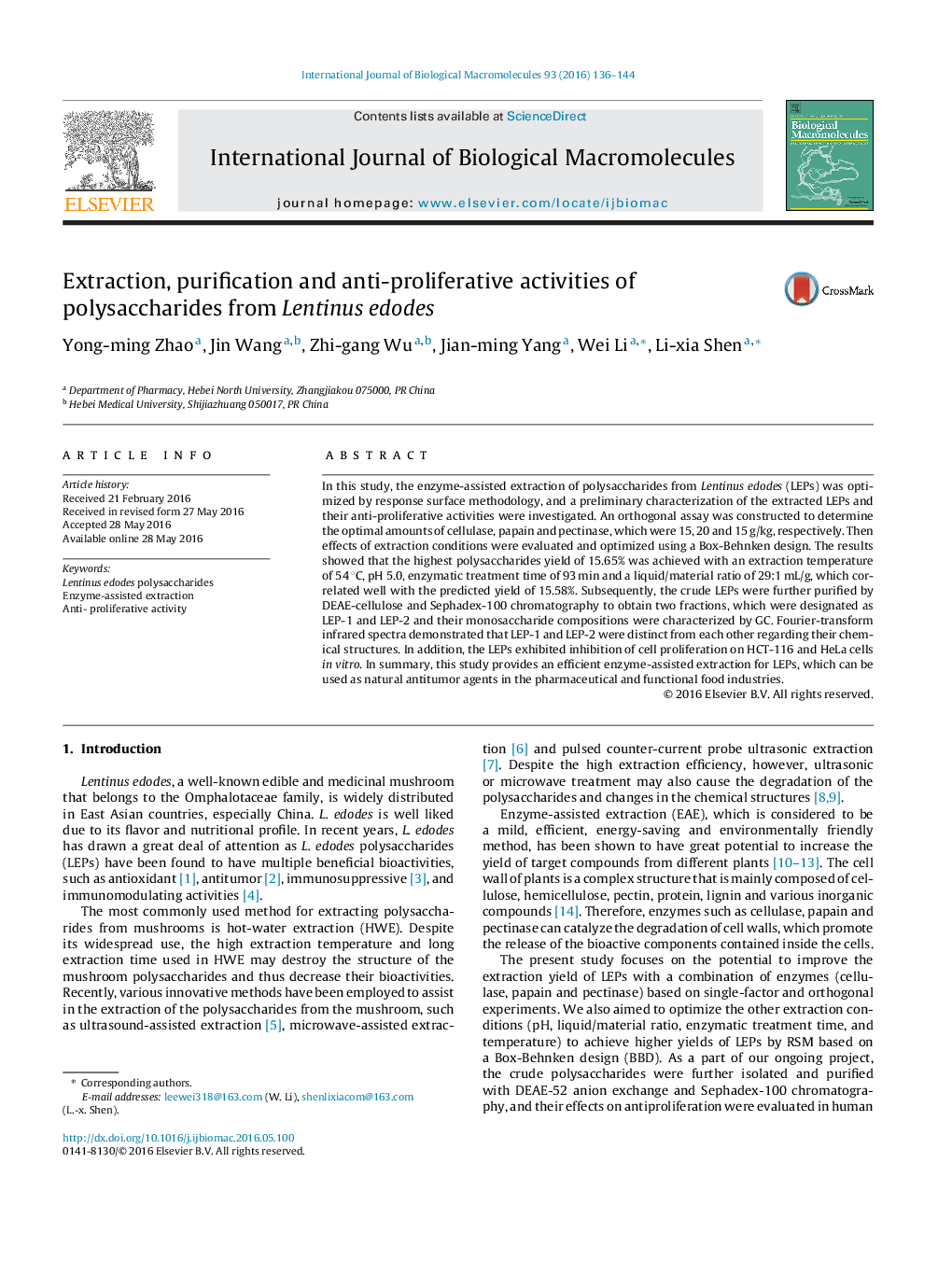| Article ID | Journal | Published Year | Pages | File Type |
|---|---|---|---|---|
| 1985540 | International Journal of Biological Macromolecules | 2016 | 9 Pages |
Abstract
In this study, the enzyme-assisted extraction of polysaccharides from Lentinus edodes (LEPs) was optimized by response surface methodology, and a preliminary characterization of the extracted LEPs and their anti-proliferative activities were investigated. An orthogonal assay was constructed to determine the optimal amounts of cellulase, papain and pectinase, which were 15, 20 and 15 g/kg, respectively. Then effects of extraction conditions were evaluated and optimized using a Box-Behnken design. The results showed that the highest polysaccharides yield of 15.65% was achieved with an extraction temperature of 54 °C, pH 5.0, enzymatic treatment time of 93 min and a liquid/material ratio of 29:1 mL/g, which correlated well with the predicted yield of 15.58%. Subsequently, the crude LEPs were further purified by DEAE-cellulose and Sephadex-100 chromatography to obtain two fractions, which were designated as LEP-1 and LEP-2 and their monosaccharide compositions were characterized by GC. Fourier-transform infrared spectra demonstrated that LEP-1 and LEP-2 were distinct from each other regarding their chemical structures. In addition, the LEPs exhibited inhibition of cell proliferation on HCT-116 and HeLa cells in vitro. In summary, this study provides an efficient enzyme-assisted extraction for LEPs, which can be used as natural antitumor agents in the pharmaceutical and functional food industries.
Keywords
Related Topics
Life Sciences
Biochemistry, Genetics and Molecular Biology
Biochemistry
Authors
Yong-ming Zhao, Jin Wang, Zhi-gang Wu, Jian-ming Yang, Wei Li, Li-xia Shen,
